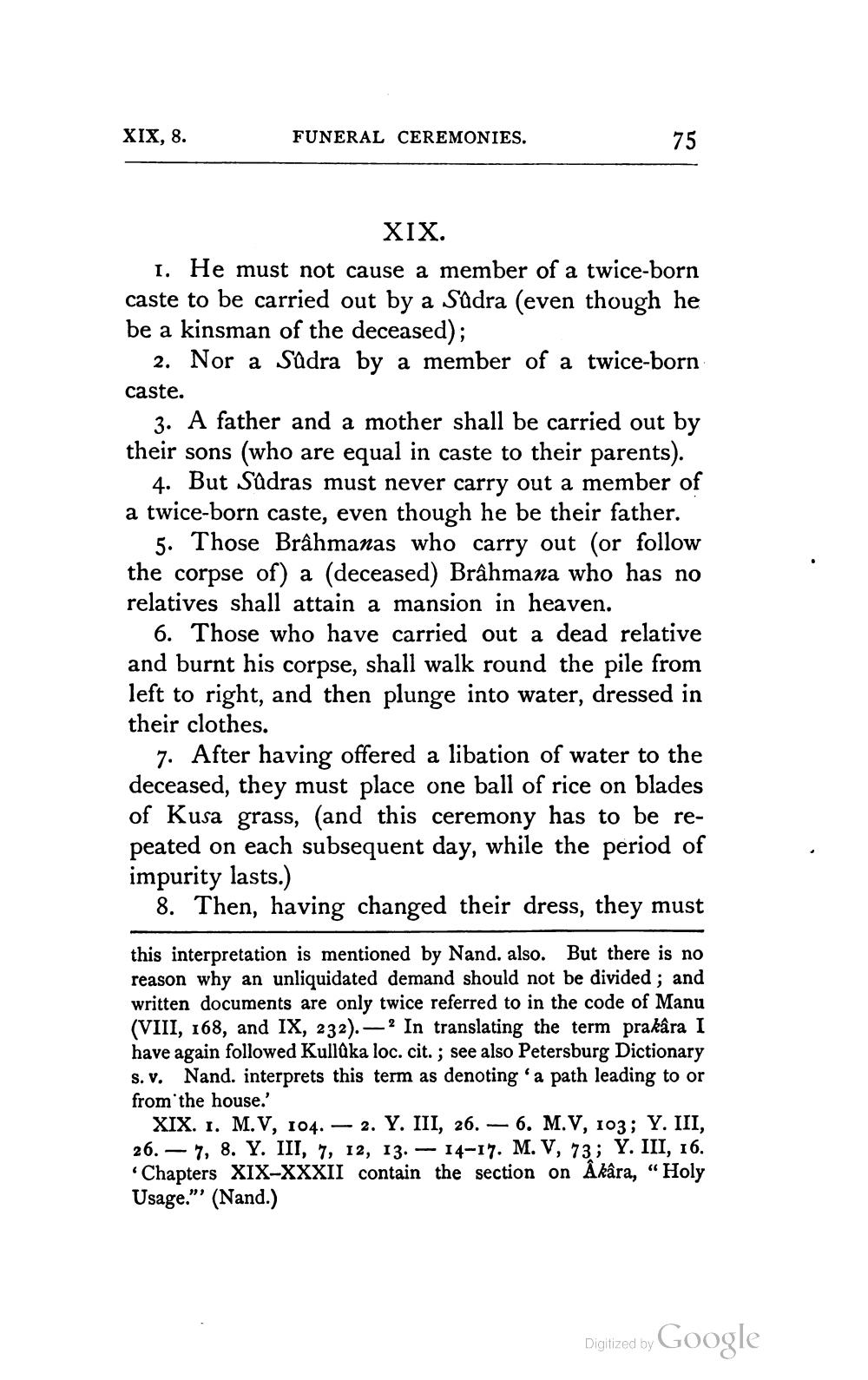________________
XIX, 8.
FUNERAL CEREMONIES.
75
XIX.
1. He must not cause a member of a twice-born caste to be carried out by a Sûdra (even though he be a kinsman of the deceased);
2. Nor a Sûdra by a member of a twice-born
caste.
3. A father and a mother shall be carried out by their sons (who are equal in caste to their parents).
4. But Sûdras must never carry out a member of a twice-born caste, even though he be their father.
5. Those Brahmanas who carry out (or follow the corpse of) a (deceased) Brâhmana who has no relatives shall attain a mansion in heaven.
6. Those who have carried out a dead relative and burnt his corpse, shall walk round the pile from left to right, and then plunge into water, dressed in their clothes.
7. After having offered a libation of water to the deceased, they must place one ball of rice on blades of Kusa grass, (and this ceremony has to be repeated on each subsequent day, while the period of impurity lasts.)
8. Then, having changed their dress, they must
this interpretation is mentioned by Nand. also. But there is no reason why an unliquidated demand should not be divided; and written documents are only twice referred to in the code of Manu (VIII, 168, and IX, 232).- -2 In translating the term prakâra I have again followed Kullûka loc. cit.; see also Petersburg Dictionary s. v. Nand. interprets this term as denoting a path leading to or from the house.'
XIX. 1. M.V, 104.2. Y. III, 26. — 6. M.V, 103; Y. III, 26.7, 8. Y. III, 7, 12, 13.14-17. M. V, 73; Y. III, 16. 'Chapters XIX-XXXII contain the section on Âkâra, "Holy Usage." (Nand.)
Digitized by Google




